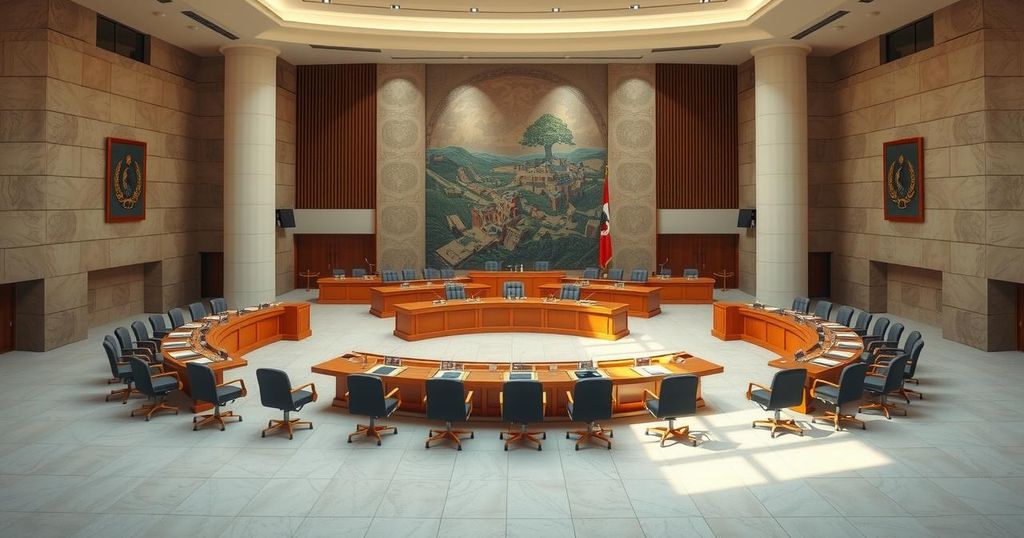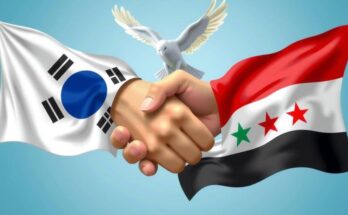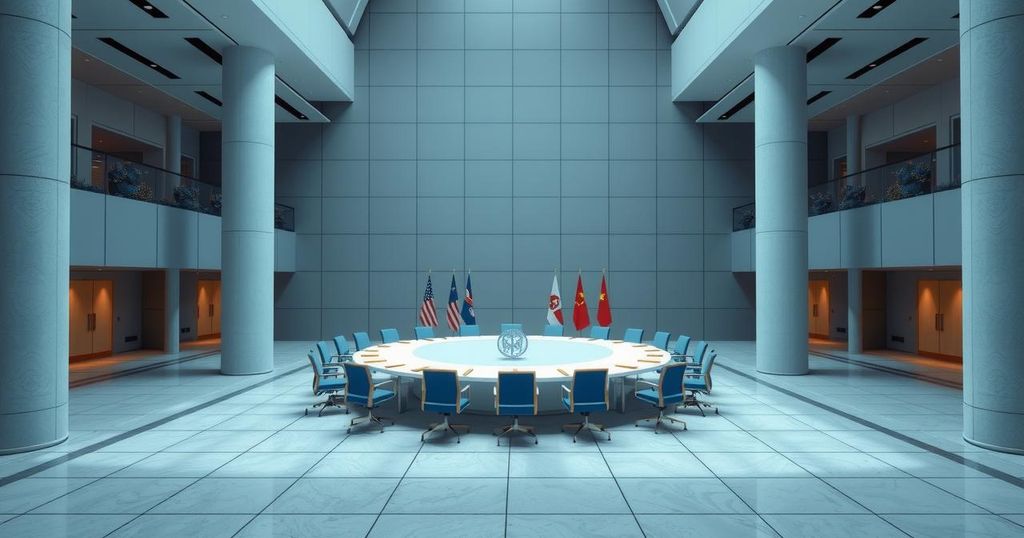Sudan is embroiled in a complex internal conflict exacerbated by ethnic divisions since 1956. This turmoil has led to a severe humanitarian crisis, with millions displaced and significant regional instability. The country’s rich natural resources and strategic location attract international interest, complicating the geopolitical landscape that underlines the urgent need for intervention to avert a wider catastrophe.
Sudan is currently a focal point of geopolitical tension, with internal political rivalries since its independence in 1956 exacerbating regional instability in Sub-Saharan Africa and the Horn of Africa. Its strategic location, rich natural resources, and access to the Red Sea make it a significant player on the international stage. However, ongoing conflicts reveal deep ethnic and religious divisions that plague the nation, transforming Sudan into a potential powder keg of widespread unrest and civil war.
The population of Sudan is ethnically diverse, comprising predominantly Arab Muslims in the north, black African and Arab cultures in Darfur, and Christians and animists in the south. These demographic divides contribute to the persistent instability and recurring violence since 1956. Current violence, particularly in Darfur and Kordofan, represents not just a continuation of past conflicts but an alarming potential for significant humanitarian crises and international repercussions.
The fallout from ongoing conflicts is already evident, with approximately 10.9 million individuals displaced internally and 2.2 million seeking refuge in neighboring countries, leading to heightened regional tensions. The International Rescue Committee has termed the situation as the worst humanitarian crisis on record, affecting nearly half of Sudan’s population. This dire scenario poses a threat to the wider Sahel region, where chronic instability can reignite old rivalries.
The complications arise from ethnic rivalries and resource competition among groups in Sudan, Chad, and Libya, particularly over valuable gold resources. The rise in artisanal gold mining due to existing tensions has intensified inter-tribal conflicts, potentially leading to renewed warlordism. With Sudan recently becoming Africa’s second-largest gold producer, the competition is expected to escalate, along with illicit activities like smuggling.
Mohamed Hamdane Dogolo has created a significant paramilitary force through partnerships with regional leaders, amassing control over military assets and gold mines. His influence extends through various ethnic groups in Darfur, which complicates the geopolitical landscape further. Given the interplay of tribal affiliations and regional dynamics, it is only a matter of time before neighboring ethnic groups engage in the conflict.
The characterization of the current strife merely as a power struggle overlooks the historical grievances rooted in social and territorial injustices. The military’s entanglement in ideological disputes complicates the resolution process, indicating that Sudanese unrest is multifaceted rather than a discrete conflict.
The international community’s intervention is crucial in mitigating the ongoing humanitarian catastrophe and aiding recovery. If assistance is delayed, the crisis may prolong, leading to catastrophic outcomes resembling conflicts seen in other distressed regions. The regional implications of neglecting Sudan’s plight could initiate widespread destabilization across Africa.
Sudan serves as a critical geopolitical player due to its pivotal geographic location and resources. However, ongoing instability offers fertile ground for extremist groups, threatening U.S. and allied interests. Furthermore, Sudan’s role in peace negotiations places it strategically within broader geopolitical frameworks, emphasizing the need for active international engagement to foster stability.
In summary, the crisis in Sudan embodies intricate challenges that intertwine historical grievances and current geopolitical dynamics. Sustained international efforts are essential to prevent further escalation of violence that could jeopardize both local and global security frameworks. The unfolding scenario in Sudan is not merely a regional issue but one that bears implications for the international order, necessitating a comprehensive and collaborative response.
Sudan has been a site of complex geopolitical issues rooted in internal conflicts stemming from its historical and ethnic diversity. The country was shaped by a multitude of challenges, including economic downturns, political instability, and deep-seated ethnic and religious divisions that have fueled violence and humanitarian crises. Its geostrategic significance is underscored by crucial resources such as oil and gold, all set against the backdrop of a fragile political landscape. The ongoing chaos in Sudan poses significant risks not only to its internal stability, but also to the wider Sahel region and beyond, engaging a variety of international stakeholders in the quest for resolution.
Sudan stands at a critical juncture with the potential for extensive geopolitical ramifications. The combination of internal ethnic divisions and external geopolitical interests has turned Sudan into a precarious geopolitical powder keg. Addressing these complexities necessitates urgent international intervention and a comprehensive approach to foster peace and stability, deterring the emergence of a wider humanitarian and security catastrophe. The interplay of Sudan’s unique strategic position and its ongoing conflict suggests critical challenges and opportunities for global diplomatic efforts.
Original Source: moderndiplomacy.eu




